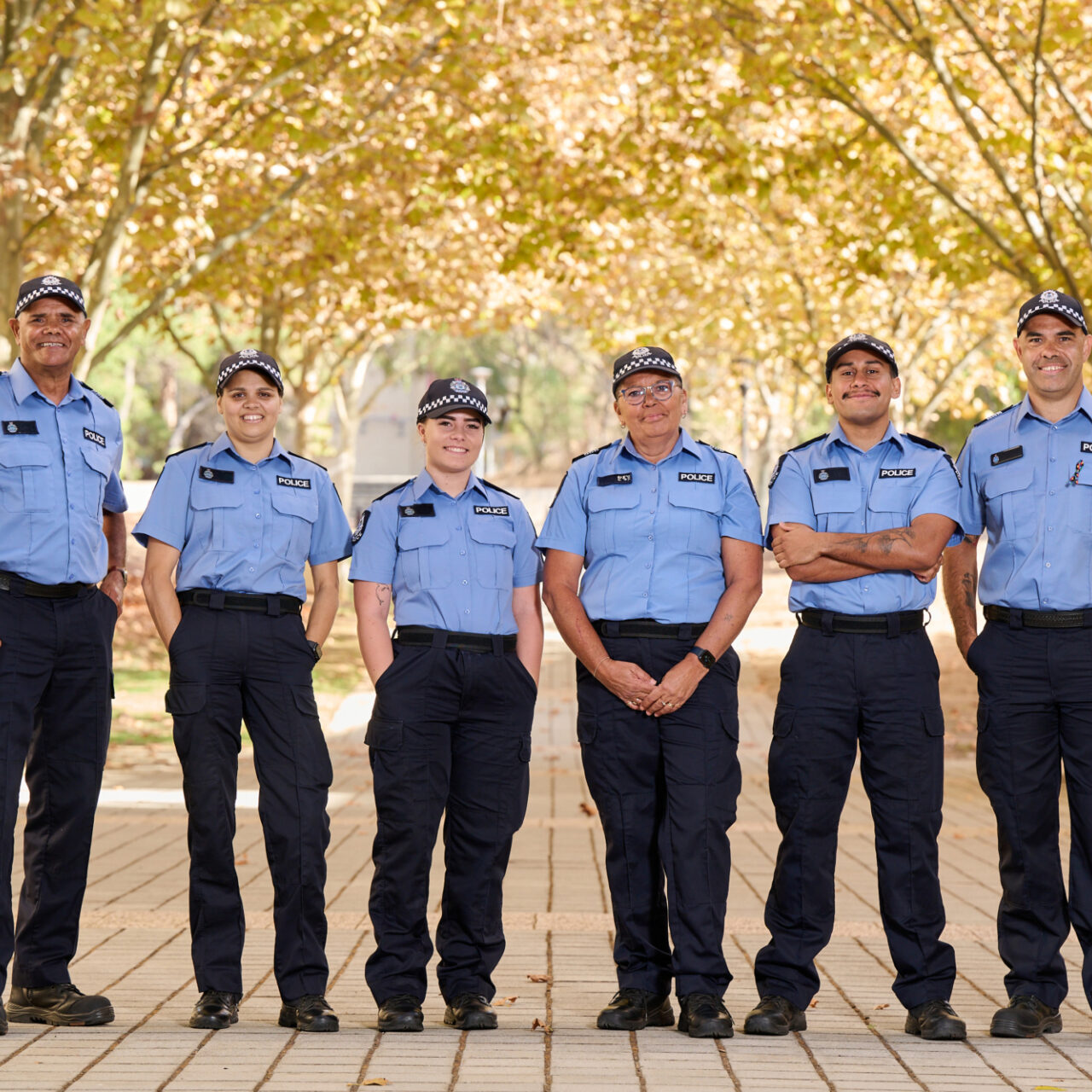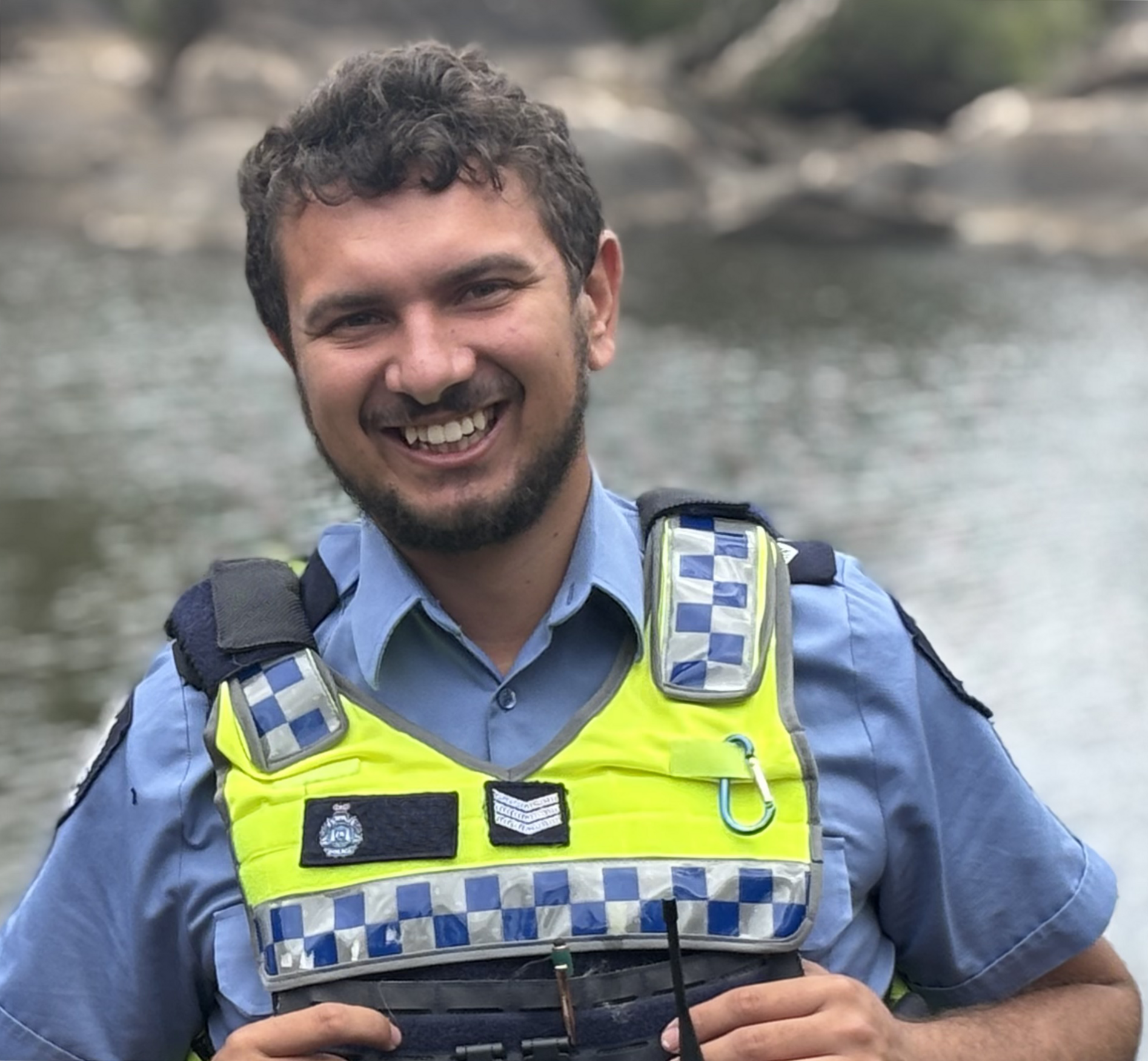Celebrating Stories, Culture and Strength
04 June 2025
Join a force that values connection, culture, and community strength.

In towns and communities across Western Australia, trust can mean everything. And for many Aboriginal people, seeing someone in uniform who understands their journey and who is part of their story can be the beginning of change.
Acting Sergeant Gibson, a Whadjuk Noongar and Meriam Magaram man, knows that better than most. Growing up in Broome, he saw the tension that sometimes existed between police and his community.
“I wanted to change that,” Acting Sergeant Gibson recalls. “I wanted to be someone our mob could rely on.”

Joining the WA Police Force became his path to creating that change from within. Early in his career, Acting Sergeant Gibson made a decision that would shape everything that followed, he took a chance on country policing and moved to Collie.
“It was the best decision I made,” he says. “In Collie, I wasn’t just a cop, I became part of the community. A role model. Someone people could trust.”
From forensic training to leading major operations, Acting Sergeant Gibson’s journey has been filled with challenges, growth, and opportunity. But more than anything, it’s been a chance to give back.
“It’s a hard job, but it’s incredibly rewarding,” he says. “You get to be a real role model for the next generation.”
That same spirit drives the Aboriginal Cadet Program, a stepping stone for young people aged 17 to 25. It’s where future officers begin with mentorship, real experience, and the support to thrive.
For Cadet Beck from Mirning country, the program became a powerful first step toward a career he hadn’t fully imagined.
“I was surprised by how much responsibility I had and how much I could actually do,” says Cadet Beck. “But what stood out the most was the connection and the support. It feels like family.”
The program gave Cadet Beck a taste of life in the force, along with the confidence to pursue his goals.
“I’ve learned so much, not just about the job, but about myself,” he says. “That transition from school to professional life was tough, but the guidance I got made all the difference.”
It’s not just officers on the front line making an impact. Community Liaison Officers, like Natalie Clark from Yamatji Country, are playing a vital role in healing divides and building bridges.
Natalie grew up with a deep understanding of the strength and pride that lives in Aboriginal communities and the pain that can come from being misunderstood.
“When I joined the WA Police Force as a Community Liaison Officer, it wasn’t just about wearing the badge, it was about creating change from within,” she says. “My role is about connection. It’s about walking alongside families, helping them feel seen and heard, and showing officers what our culture really means.”

Natalie works closely with both community members and police teams, acting as a cultural guide, advocate, and trusted voice.
“There are moments that stay with you,” she shares. “Like when a family comes to you for help because they know you’ll listen or when you see an officer start to understand the deeper meaning behind a cultural practice. That’s when you know you’re making a real difference.”
She believes the role offers something powerful, not just to the community, but to the people who step into it.
“If you're proud of who you are, if you’ve got a passion for helping people, and if you want to stand in that space between two worlds and bring them closer together then this is your chance,” Natalie says. “This is how we change things.”
Are you ready to be part of something bigger?
Bring your culture. Your voice. Your strength. And take that first step toward a role where you don’t just serve the community, you help shape its future.